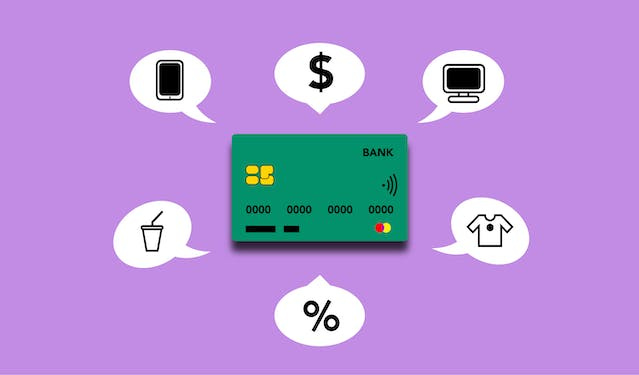Five tech hacks to build credit without stacking up credit card debt
BlackTechLogy: How Upwork freelancers can make traditional and store credit cards work for them instead of drowning in IOUs

This post is part of a series entitled “BlackTechLogy.” Click here for the archived posts.
I opened my bank statement and stared at the checking account fee, completely lost about what I’d done wrong. It turns out I had the audacity to get paid the same amounts from clients — only without ACH transactions. How dare I get paid via Zelle and PayPal Business instead of the traditional payment route? I shook my head and called my bank to complain.
Upwork changes that made me reevaluate credit card activity
This all started when I grew exhausted with the post-pandemic new rules that Upwork has created for freelancers. I have been on the freelancing site since 2014 before the merger of Elance and oDesk. The online marketplace allowed freelancers to apply for jobs for free. You didn’t have to pay to confirm you were available to work. You weren’t paying for two connects, four connects, eight connects and now 16 connects for the same kind of job for the same job duration.
Upwork freelancers used to only pay a 5% fee after earning $10K but still had to pay 20% for making the first $500. Last year, Upwork changed the requirement to 10% no matter how much the freelancer makes — while still charging them quadruple the amount to apply for a job via Upwork Connects for clients that may never answer a job proposal. There are no refunds for clients who abandon job posts and/or are unresponsive. I got tired of Upwork moving the goal post and started looking elsewhere for clients, and that’s how I landed on PayPal Business and Zelle as payment methods for private clients.
The downside? I lost ACH deposits that were regularly coming in from Upwork. The upside? Even with the bank fee, I’m still paying less money than Upwork’s new fee charges — and opting almost exclusively for free job invites instead of paying for Upwork Connects.
ADVERTISEMENT ~ Amazon
As an Amazon affiliate, I earn a percentage from purchases with my referral links. I know some consumers are choosing to boycott Amazon for its DEI removal. However, after thinking about this thoroughly, I want to continue promoting cool products from small businesses, women-owned businesses and (specifically) Black-owned businesses who still feature their items on Amazon. As of the first date of Black History Month 2025, each new post will ALWAYS include a MINIMUM of one product sold by a Black-owned business. (I have visited the seller’s official site to verify that Amazon Black-owned logo.) I am (slowly) doing this with older, popular posts too. If you still choose to boycott, I 100% respect that decision.

Why do credit scores matter so much for freelancers?
No matter how you make your money in the freelancing world, Upwork or not, your banking habits and credit card spending will continue to matter. And without a regular 9-to-5 job, you’ll really need to make sure your credit score stays in tact.
Just as I find it particularly pointless to have to pay a bank fee for making the same amount of money from a different payment method, I’m equally puzzled by why debit card charges don’t improve credit scores in the same manner as credit card charges. It’s the same purchase price for the same amount, so what difference should it make?
The three credit bureaus are pretty much sending the message that they need you to be in some kind of debt to enjoy a solid credit score. For this reason, I understand why Investopedia has so many complaints on this particular video.
So what should full-time (or part-time) freelancers do when they want a solid credit score without having to deal with all the fees, fines and outstanding balances attached to it? Here are five simple ideas I’ve used as a freelancer (by accident and on purpose) to try to improve my credit score after cutting up some credit cards and reevaluating how I’m paid.



